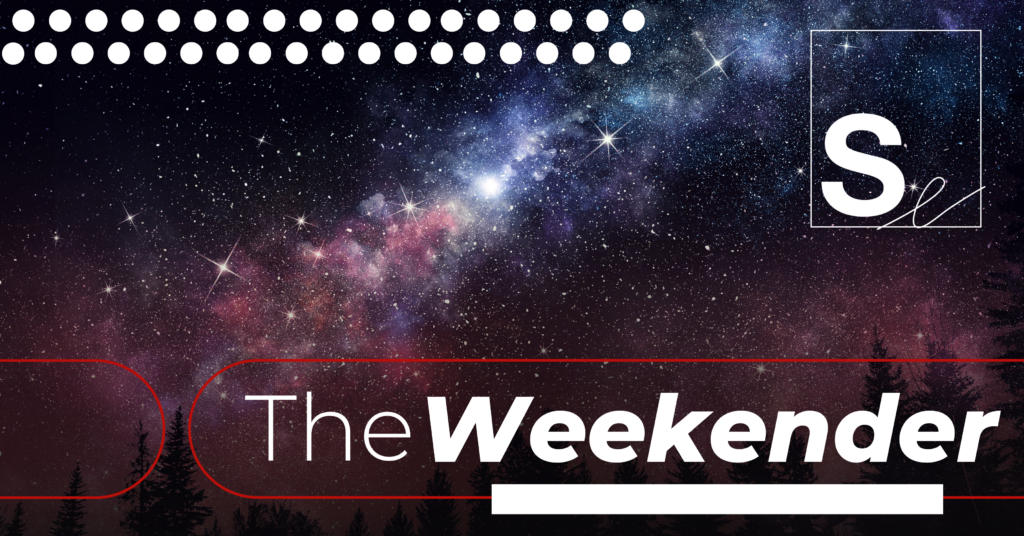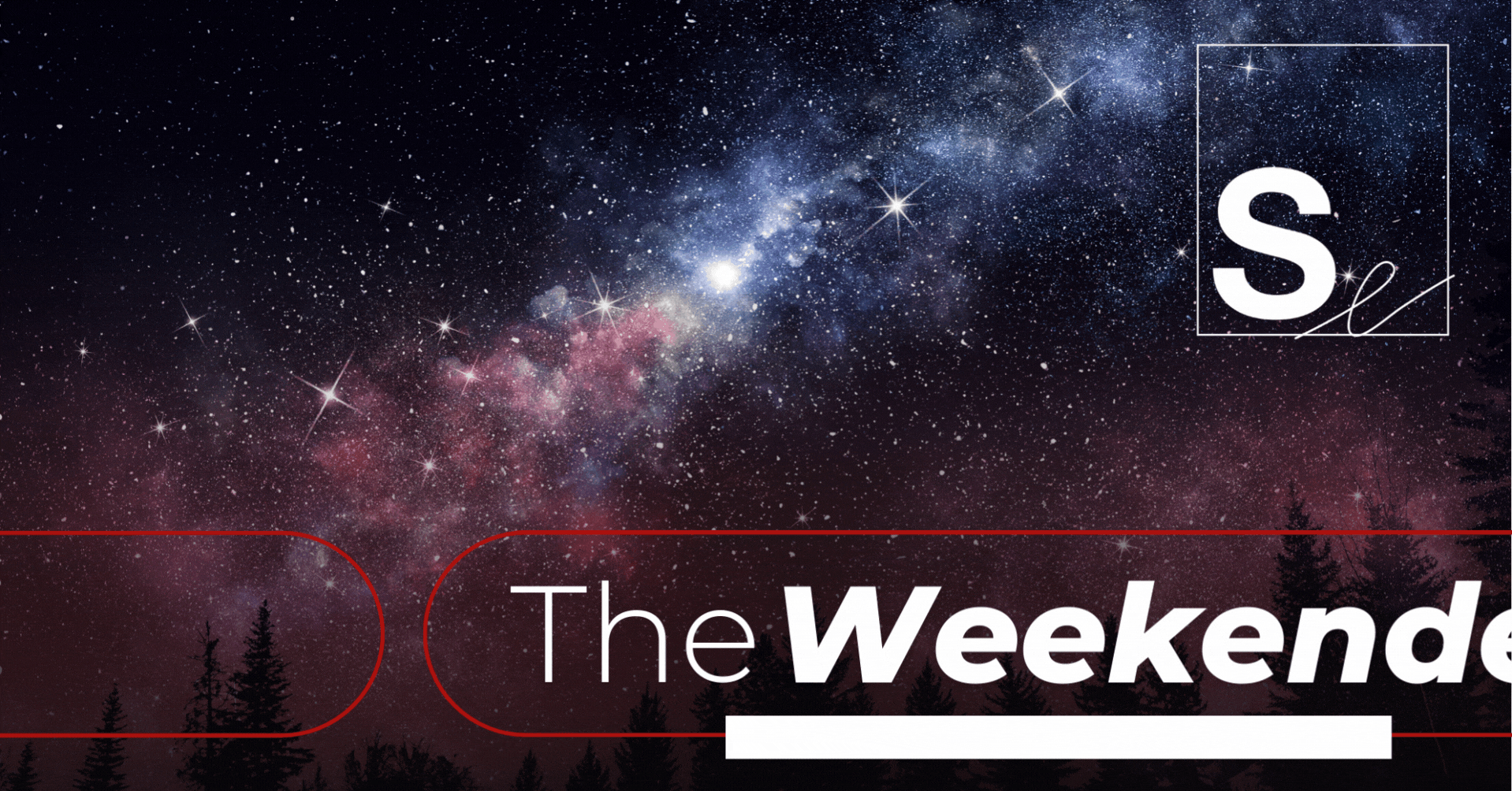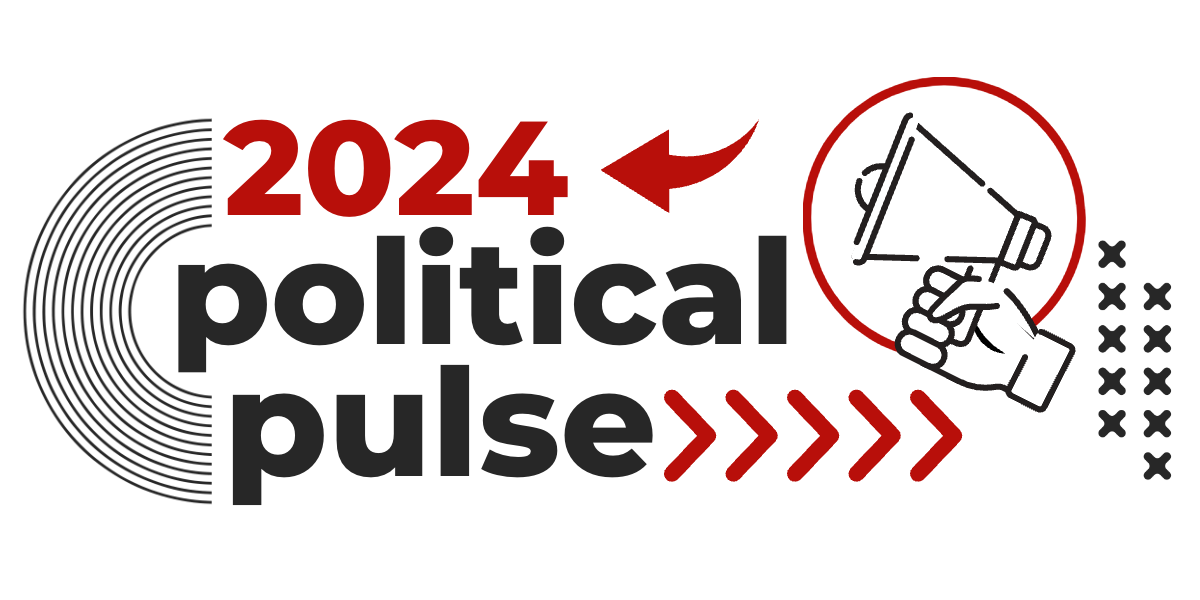 DATA POINTS
DATA POINTS
- 57%: The percent of Ohioans voting “No” on Republican-backed Issue 1, effectively protecting an initiative to establish a state constitutional right to abortion access.
- 3.6 Million: The number of job openings that outnumber unemployed workers.
- 15 Million: The number of Americans who work the nightshift.
- $85 Million: The amount of money Anheuser-Busch sold eight of its brands for.
- $1.58 Billion: The amount of money earned before taxes by a winning Powerball ticket sold in Florida.
- $6 Billion: The amount of money Biden used to strike a deal freeing Americans in exchange for jailed Iranians.
 Carlson Steals the Show in Iowa
Carlson Steals the Show in Iowa
Iowa continues to hold immense weight for Republicans in the U.S. presidential primary process. This past July, 2,000 evangelical Christians convened at the Family Leadership Summit in Des Moines to hear from GOP presidential hopefuls. Each candidate was given stage time to lay out their case for conservative values. Out of the candidates participating in the conference, many audience members were most interested to hear from another popular face in Republican politics: former Fox News host Tucker Carlson. Carlson sat down on stage with every candidate to ask critical questions. Tim Scott, Mike Pence, Asa Hutchinson, Nikki Haley, Ron DeSantis, and Vivek Ramaswamy attended the conference hosted by the long-standing religious conservative organization, Family Leader.
The national frontrunner in the GOP Donald Trump did not attend the event. Much of the audience already sits firmly in former President Trump’s corner and mentioned that he still has their vote. There are still 451 days until the 2024 election and polls will inevitably shift until voters cast ballots. Meanwhile, events like this will move the needle and inform decisions for voters.
Read More at Iowa Capital Dispatch
U.S. Students are Targets of Cybersecurity Threats
The White House held its first-ever cybersecurity summit to combat ransomware attacks targeting U.S. public schools. For context, 48 school districts have been victims of ransomware attacks so far in 2023, already surpassing last year’s totals. The attackers are typically Russian natives looking to steal sensitive student data, including Social Security numbers and counseling information. Once sensitive data is secured, hackers will then threaten to activate network-encrypting malware if the school district does not pay them in cryptocurrency. The FBI recommends against paying hackers since there is no guarantee the stolen information does not reach the dark web anyways. 1.2 million students were affected in 2020 and nearly one in three U.S. districts was breached by the end of 2021.
Federal Communications Commission Chair Jessica Rosenworcel proposed a program ensuring $200 million is available over the next three years to increase schools’ cyberattack resilience. While the Biden Administration is taking action to address the issue, education tech experts fear the limited federal funds will be insufficient to defend students. Advocates are pushing the Biden Administration to allocate more funding to these programs, which are already serially underfunded. Only 24% of the nation’s 1,300 school districts spend more than 10% of their IT budget on cybersecurity defenses while nearly half spent 2% or less. 66% of school districts lack a full-time cybersecurity professional.
These attacks pose a serious threat to students’ lifelong digital security, school staff burnout, overall morale, and school safety. The Biden Administration is still determining the best course of action and the appropriate level of funding to enhance school district security.
Read More at The Associated Press
An Economy Under Millions of Stars, not Just One

If every dollar spent is one vote, the Night Party is gaining steam. Amazon saw a 113% increase in searches for blackout curtains between June and August compared to last year. Lime electric scooters experienced a 25% rise in riders between 9 P.M. and 11 P.M. in Austin, Texas. Hyatt hotels are offering after-dark activities like cosmic yoga and astrophotography. Pools are changing their hours, happy hours are hurting, and people are completing chores in the dark. As heat levels continue to rise, our economy will shift itself to support the needs of the new Nocturnals.
People working in the cool hours of the morning, sleeping through midday, and going back to work around twilight is not a new phenomenon. The “siesta,” popular in Spain for napping during the hottest hours of the day, originates from the Latin “sexta,” which was a Roman tradition to take a break during the sixth hour of the day. After the Civil War, it was popular for people to work two jobs: one in the morning and one at night, to avoid blistering heat.
It appears heat waves are changing our economy to rely slightly more on the light of a million stars rather than the one we hold dear.
Read More at The Wall Street Journal
Butts in Seats for Remote Work Titan Zoom

Dell, Disney, Amazon, Activision Blizzard, Walmart, Starbucks, Meta, and General Motors, among others, ended their remote work opportunities in 2023. Despite large companies pulling employees back in, office occupancy continues below pre-pandemic levels as weekly occupancy of office buildings in July 2023 across 10 cities in the U.S. is still below 50%.
Read More at The Washington Post
Dry Eyes Incentivize Low Screen Times

Luckily, there’s tons of things people can do to avoid dry eyes. Consciously blinking regularly, drinking more water, increasing humidity, eating more fatty acids, and wearing sunglasses can reduce eye strain. If these do not work and you still experience eye discomfort, it is time to talk to your doctor or optometrist.
Airlines Upset with Travelers Jumping Ship

It’s difficult to track so there’s little data on its prevalence, but an increase in services dedicated to helping travelers perform the hack suggests its use is on the rise. Travelers may be increasingly utilizing this trick as a response to the prominent struggles of traveling by air over the past few years.
Airlines’ contracts explicitly ban the practice. United Airlines maintains its right to cancel reservations “made to hold or block seats for the purpose of obtaining lower fares.” They even hold the power to permanently ban individual passengers from future flights for using the trick.
Of course, there are risks for travelers. If you check a bag, it will arrive at the final destination on your flight path, including gate-checked carry-ons. Further, flight itineraries and layovers often change. Airlines fully intend to get you to your final ticketed destination, not wherever they informed you a layover would occur.
INTERNATIONAL SPOTLIGHT
What’s in a Name
To be scotch, it must be made in Scotland; to be champagne, it must be made in Champagne, France; and to be bourbon, it must be made in the U.S. (not only Kentucky) – just to name a few. International fights over the rights to name products have been a sticking point for global trade for years. New battles are still popping up daily despite the U.S. and E.U. being longtime allies and trade partners. There are currently more than 3,500 protected items, marking a 28% increase in filed protections since 2010.
The E.U. is increasing the number of their domestic products which receive special naming treatment and is easing the application for member countries to add their products to the list. This puts American producers in a difficult position. They sell products under popular names that have been in the public domain for decades or centuries – and now face countries claiming them as their own.
The E.U. mentions that its system does not prevent U.S. producers from selling products in America under protected names, but it will legally change how they export and sell products in Europe. This may result in dropped international sales by forcing producers to change their products’ names from the ones consumers recognize. It may also lead to higher costs to repackage existing goods under new names.
These negotiations present an interesting point of contention to the determining factors of what qualifies as “anti-competitive” or “public domain,” and the intricacies of the global economy.
Read More at The Wall Street Journal
FEATURED TWEET



 DATA POINTS
DATA POINTS Carlson Steals the Show in Iowa
Carlson Steals the Show in Iowa


